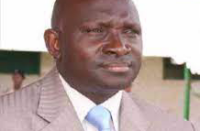Sutay Kuta Sanneh, in your last article titled It’s Our Time To Eat published by Kairo News on November 14th, you called for attitudinal change and you went on to blast supporters of current and past regimes. I think the problem with your approach is that you failed to recognize and understand that leaders have greatest influence to effect structural changes which include attitudinal change. Leaders should have vision and ideas to change our political, social and economic conditions, though citizens have responsibility to hold them accountable. So whatever underdevelopment or political setback Gambian people went through since independence is not entirely the fault of Gambian people or society. Majority of mistakes or deliberate wrongdoings were the fault of leaders we had. For example, President Barrow refused to be called ”Alhagie” and this was made public. Such simple action has diminished all important connotation attached to that title. Therefore it becomes irrelevant to call him or anyone “Alhagie.” This has biggest impact on the way people now perceive the title of ”Alhagie” and has resulted to attitudinal change in my view. The same can happen when leaders engage in meaningful politics which is all about having good policies to effect social and behavioral changes. Therefore, in your article you shifted the blame on Gambian society as the one responsible for the failures of our leaders. I think that is an unfair assessment because we chose the best among us not only to lead but also be able to transform our social, political and economic systems. This is why I believe you put the cart before the horse. In the same article, you praised President Barrow for firing Mr Mai Fatty as a show of his leadership or strategic vision to move the country in the right direction but when his supporters called on him to appoint people who have been in the forefront of the struggle, you called that favoritism or reward. Politics in any civilized society has reward and this is why every political party in power comes with their political appointees to fulfill certain political positions. This is normal in any democracy. Example, the appointment of Vice President was a political reward because she was in the forefront and pioneer to effect change in The Gambia, despite the outcry from many. If you refused to participate in politics expect that people you call “idiots” would represent your interest or make decisions for you. I see your article as displacement of blame on the Gambian society which is obviously wrong. You need to go back and study leadership 101 at college level or just start at household level. Who should you blame for the failure in the House, the head of household or children? This reminds me of a famous quotation ”a child bearing is optional but child rearing is an obligation upon every parent.” Just think about that.
Max
Ends

